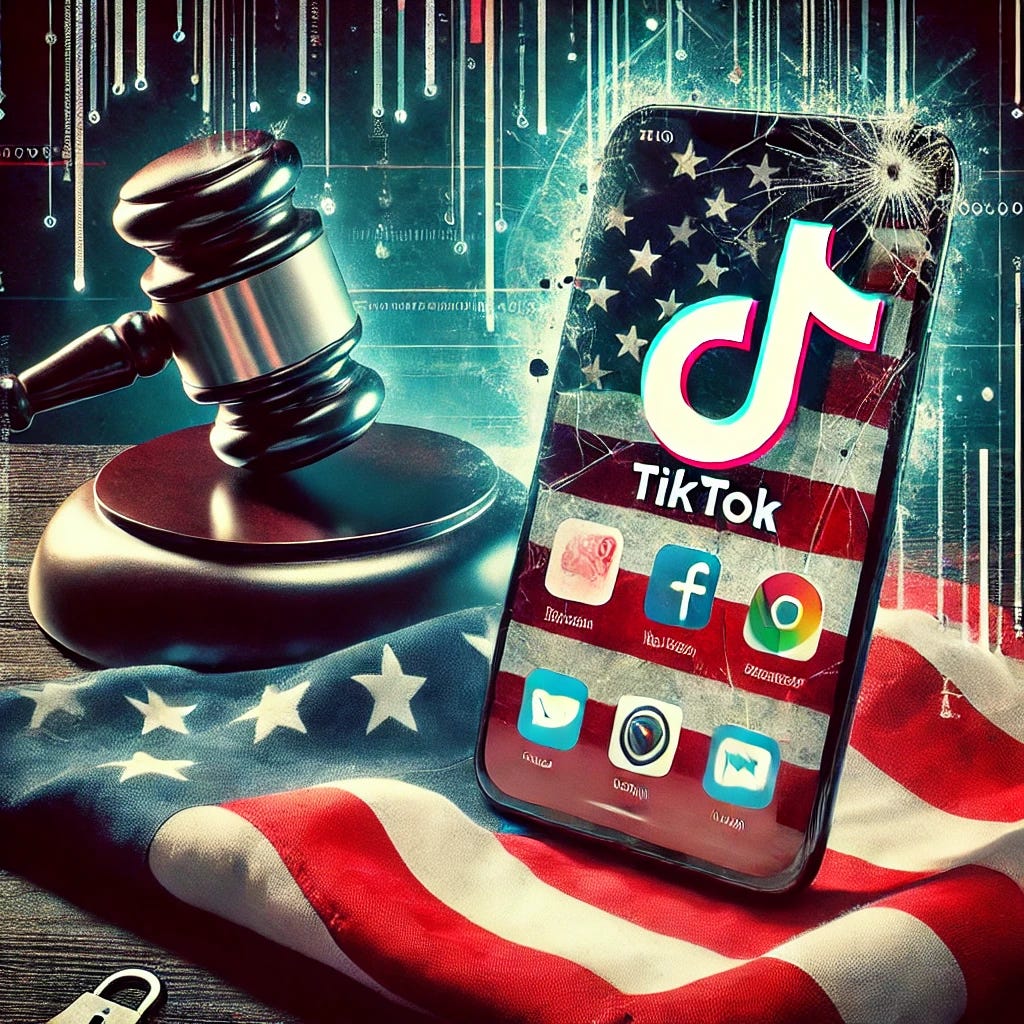American Protectionism: Tech & Innovation Policy in 2025
Addressing a Second Trump Presidency: Part 2
Technology policy and innovation policy are about to change in some dramatic ways, and some of them will be unpredictable. One thing is for certain, however: the United States will become ever more protectionist. People have been largely discussing this in context of the massive amount of proposed tariffs from the upcoming Trump administration, but there are many more examples. While I’ll expand on this more next week, some of them directly impact domestic tech and innovation policy.
The Issue of Banning TikTok
The looming TikTok ban on January 19th is one such example. Congress has ordered Tiktok’s parent company ByteDance to sell off TikTok to an American company, promising to ban the software should ByteDance fail to do so. Explaining the backstory and the ramifications of this ban in full would deserve its own article (John Oliver performs a great recap of this), but in short, there are two categories of issues repeatedly cited by lawmakers as problems significant enough to warrant a ban:
ByteDance is hosted in China and is therefore subject to Chinese laws stating that their government can request any and all manner of data from ByteDance at any time and has ways of forcing them to comply. The concern here is over United States citizens’ data getting in the hands of foreign actors.
TikTok employs addictive algorithms to keep users engaged and on the platform. This has several associated issues, but there’s widespread regulatory concern that the app could be used as a proxy cultural attack on American values.
While data-sharing concerns and algorithmic data processing concern many lawmakers, the fact of the matter is that these concerns exist largely only in the context of the China-America relationship. The problems evident do not really clear up in the event that ByteDance divests of TikTok. Other social media companies employ similar algorithms, and there’s no particular reason that the Chinese government couldn’t already possess that data. An actual, tangible solution to the core of the issue would be for the federal government to pass sweeping data privacy laws; however, these prove unpopular to current business interests and will certainly not pass in the next two years. Notably, the United States is the only major developed country that does not have such regulations in place. Given all of that, it is hard not to see the problem with TikTok as, “yes, this is certainly a problem, but it's not a problem limited to TikTok so why is only TikTok being punished for it?”
Cynically, this is a small win for lawmakers because they get to claim that they had a victory in data privacy while actually doing very little. TikTok users aren’t going to significantly change their habits following a ban, so it’s expected that Meta, X, and Google (all domestic companies) will take over TikTok’s market share. It is therefore inherently a very protectionist ban, even on the off-chance that lawmakers aren’t proactively thinking about that market share.
The Issue of the Expansion of Big Tech
This potential ban comes at a time when Silicon Valley leaders are kowtowing to the incoming Trump administration. Between Meta’s Zuckerberg aligning with Trump interests, including donating $1 million to Trump's inauguration fund, OpenAI’s Altman matching that $1 million to Trump’s inauguration fund, and X’s Musk rapidly becoming a mouthpiece for the entire Trump campaign. All of these people seem to expect returns on their investment in the new administration. But while voters largely wanted to protect domestic jobs in voting in the new president, businesses largely want lower domestic labor costs. This combined with AI’s expanding role in the labor market is likely to expand American business dramatically at the expense of American jobs.
Donald Trump heavily favored big businesses over voters in his first presidential go-around, and it seems likely to continue in his second. Despite coming to blows with industry leaders in the past (especially following the disastrous January 6th), most leaders in big tech now are at least trying to get along with Donald Trump enough to avoid his ire. This shift in signalling from corporations indicates a renewed, relaxed interest in protecting democratic institutions. Labor may suffer already if proper guardrails are not enacted for AI, but at least for the moment, it seems like Big Tech will continue to get an economic foothold over the United States.
Part 1 available here.



